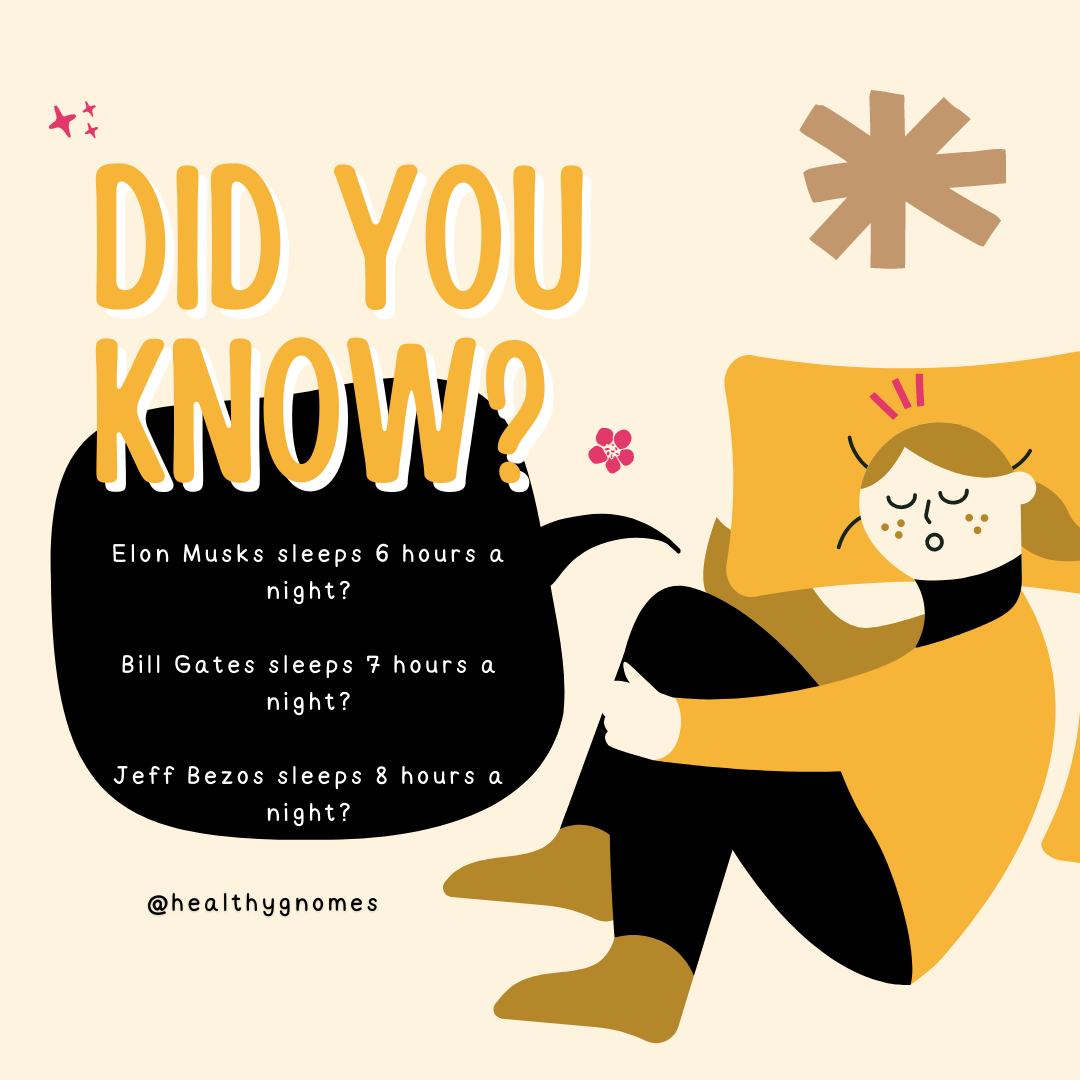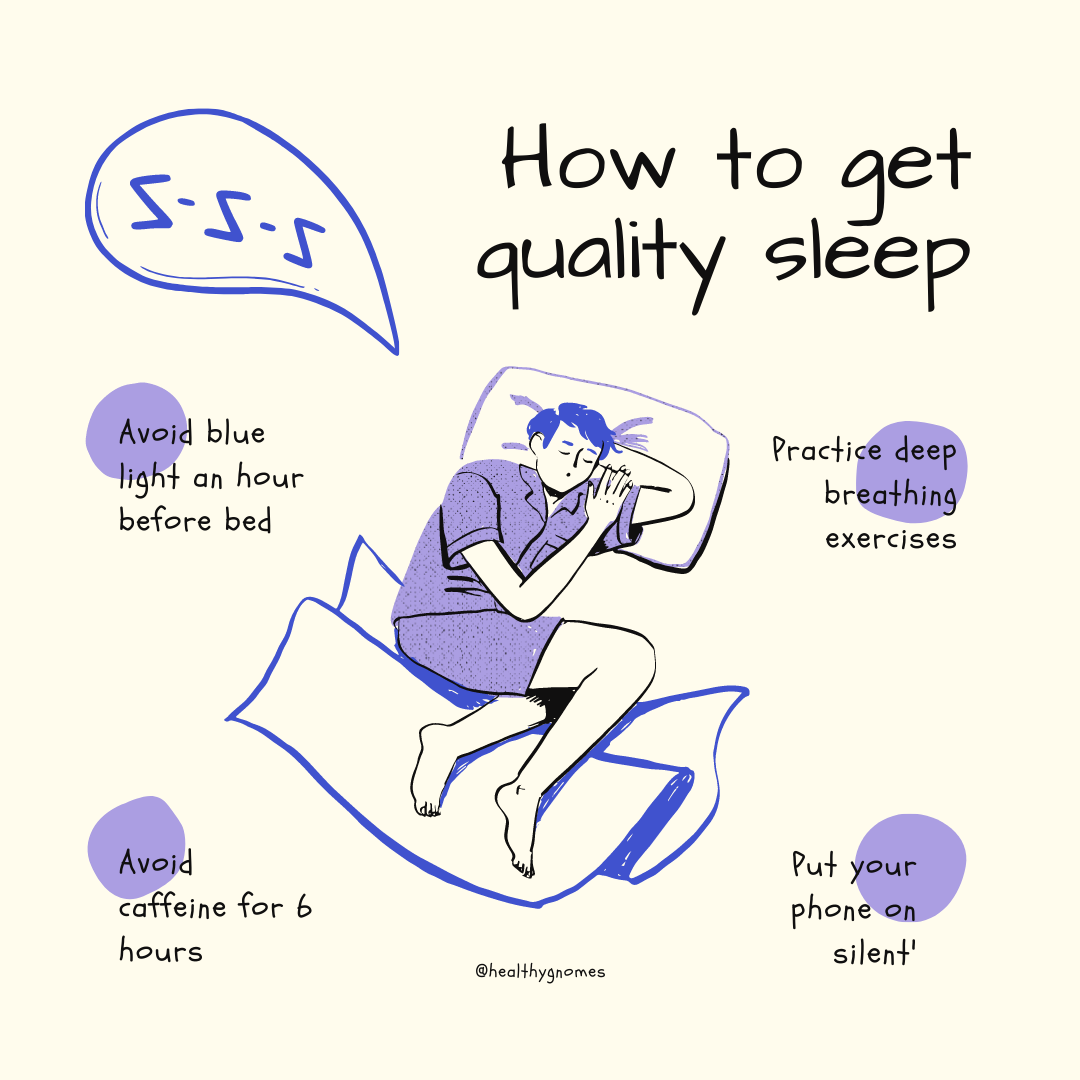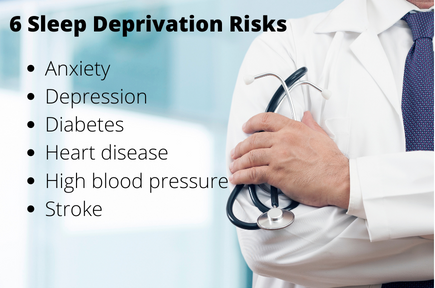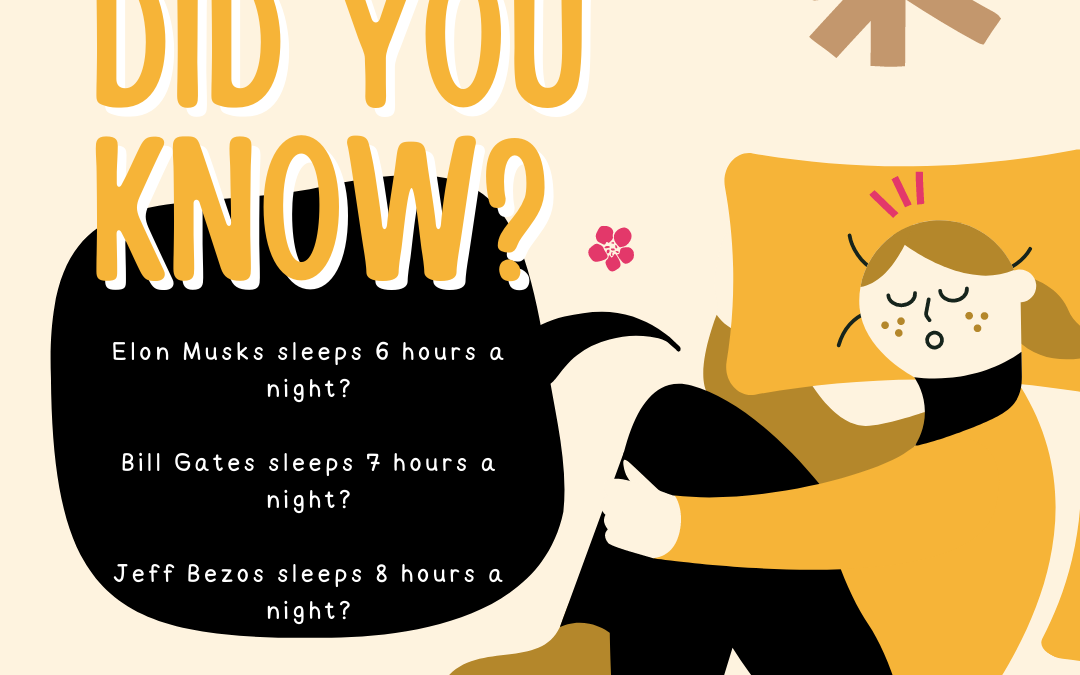Everyone wants to maximize their time. There’s an obsession with The 4-Hour Workweek, and the mega-wealthy often promote getting less than eight hours of sleep per night. But if you’re like me and enjoy your sleep, you’re probably wondering how to get less sleep and feel better?
If I sleep less than six hours, I might feel energized at first and then crash midday.
However, there are ways for you to improve the quality of your sleep so that you don’t suffer a midday crash, as many people do.
Let’s see how to get better and less sleep so that you can maximize your day.

Sleep Duration of the Wealthy
You should be listening to researchers on the amount of time to sleep. However, some of the most successful people in the world have shared their sleep habits, which is quite interesting:
- Elon Musk told Joe Rogan he sleeps about six hours per night because anything more and he feels less productive.
- Bill Gates now sleeps 7 hours per night because he feels happier and more creative.
- Jeff Bezos states he sleeps eight hours per night because he has more energy.
It’s worth noting that Gates used to think that sleeping a lot was a lazy habit, but he says he was obsessed with work at the time.
While this list can be drastically longer, these three individuals are often seen as the most successful in the world and sleep 6 – 8 hours per night. You may hear that some people sleep four hours or less per night, but this habit can lead to severe sleep deprivation.
How to Get Less Sleep and Feel Better
If you’re sleeping 7 – 8 hours per night, this is a good range and not something that you should strive to change. Squeezing in an extra hour of work per day and feeling exhausted is likely to hamper your productivity more than it helps it.
There are also some serious risks to under-sleeping, which we’ll get into in more detail shortly.
So, why do you function better with less sleep sometimes? Quality of sleep is important, and a person sleeping in the middle of a quiet forest will likely have a much higher sleep quality than someone trying to sleep with noise all around them.
Quick Lesson on Sleep Stages
When you sleep, you’re going to sleep in one of five stages. The stages of sleep are:
- Wake
- N1
- N2
- N3
- REM
You’ll sleep in cycles, and you can really consider N1 – N3 as simply non-REM sleep. REM, short for rapid eye movement, is a short period of sleep.
In fact, REM sleep is when you’re dreaming and isn’t actually a restful sleep stage. Instead, REM sleep is rather close to your wake stage of sleep. Of course, all stages of sleep are important, but deep sleep seems to be associated with feeling rested.
In this case, N3 is the deepest, non-REM sleep that you can obtain. Sleeping in N3 allows for:
- Body repairs
- Immune system strength
- Bone building
- Tissue regrowth
- Etc.
Hacking Your Way to Deep Sleep
Unfortunately, you can read about how to sleep less and better, follow recommendations on things to do before bed and that’s it when trying to get better sleep. However, one study does suggest that through auditory stimulation, there may be ways to:
- Improve N3 sleep quantity
- Increase sleep depth
- Improve next-day sleep
And it’s suggested that with the right auditory environment, it may be possible to improve sleep quality even when sleep duration is lower.
With that said, researchers have not released any audio to follow to achieve these goals. We have dug up a few studies on tips that can improve sleep:

10 Sleep Hacks to Improve Sleep Quality
If you want to sleep less and better, you may want to try the following:
- Exercise during the day but not too close to sleep
- Avoid blue light, like the one from your phone for an hour before bed
- Keep bright lights out of your room (blackout curtains help)
- Reduce caffeine intake and do not drink caffeine six hours before bed
- Reduce your alcohol consumption
- Avoid liquids before bed to lower the risk of having to get up in the middle of the night
- Put your phone on silent to avoid distractions
- Take a hot bath
- Meditate
- Practice deep breathing
You’ll also want to read our article on how to get to bed on time because maintaining a routine will make it easier to get the sleep you need every night.
Tossing and turning or having trouble falling asleep? Learn how to wind down for the night.
How Much Sleep Do I Really Need?
Sleep changes as you age, and a general rule of thumb is that you need the following amount of sleep based on your age:
- Newborns need 14 – 17 hours of quality sleep
- Infants need 12 – 15 hours of sleep time
- Toddlers need 11 – 14 hours of sleep per night
- Preschoolers need 10 – 13 hours of regular sleep
- Ages 6 – 13 need 9 – 11 hours of sleep per night
- Ages 14 – 17 need 8 – 10 hours of sleep
- Ages 18 – 64 need 7 – 9 hours of sleep
- Ages 65+ need 7 – 8 hours of high-quality sleep

What Happens If I Don’t Sleep Enough?
Sleep experts state that if you don’t have a night of quality sleep, you’re at risk of sleep deprivation, which can increase the risks of:
- Getting sick
- Early death (here)
- Anxiety
- Depression
- Obstructive sleep apnea
- Overeating
- High blood pressure
- So much more
Changing your sleep patterns will help ensure that you lower these risks. Poor quality sleep, even if you’re awake for more hours during the day, can have a long-lasting, negative impact on your well-being.
FAQs
Why Do I Function Better With Less Sleep?
Sleeping less and feeling better may be due to:
- Better sleep quality
- Gene mutation (more on this below)
If you’re oversleeping, defined as more than 9 hours of sleep a night, it may not be good for your health. Research suggests that oversleeping may be a sign of an underlying problem – so you may want to schedule a checkup with your doctor.
How to Sleep Less Than 4 Hours?
Extremists seem to hack their way to four hours of sleep at night or less. If you go on social media, you’ll find a lot of people boasting about their lack of sleep. However, there is a form of sleep called Polyphasic sleep, which refers to sleeping in more than two segments per day.
For example, a person may:
- Sleep 4 hours from 11pm to 3am
- Take a nap from 6am to 6:30am
- Take a nap from 12pm to 12:30pm
- Take a nap from 5pm to 5:30pm
You’ll find quite a few variations of this sleeping method, such as the Dymaxion schedule, which includes 4, 30-minute naps every six hours for a total of 2 hours of sleep per day.
There’s also the Uberman schedule of napping for 20 minutes every 4 hours.
A few things that are worth noting here are no studies indicating that your body will adapt to this extreme sleep deprivation.
In fact, a 2017 study found that following a Polyphasic sleep schedule led to the same side effects of sleep deprivation in some participants, including:
- Anxiety
- Depression
- Heart disease
- Stroke
- Sleep apnea
- Diabetes
- High blood pressure
- Etc.
You may feel great for freeing up time in your day by not sleeping, but the long-term risks can also be severe.
Is It Better to Sleep 6 or 7 Hours?
Ideally, you’ll sleep within the recommended hours for your age group, as outlined in the section “How Much Sleep Do I Really Need?” In most cases, sleeping 7 hours per night is ideal, even though Elon Musk sleeps around six hours per night.
Your body may need less sleep if you have a specific gene mutation.
Scientists have uncovered a gene called ADRB1, which if you have, you can sleep less than seven hours a night without any consequences.
What is Gene ADRB1?
A study from 2019 suggests that a genetic mutation of the β1-adrenergic receptor gene allows people to:
- Sleep less
- Keep neurons active during REM
- Promote wakefulness
The genetic mutation is called ADRB1. Essentially, the mutation shows the important role of these receptors in wakefulness and sleep regulation. And, according to current research, the gene allows for less than 6.5 hours of sleep without any noticeable side effects.
You can read up on hacks and tricks on how to get less sleep and feel better, but your body truly needs sleep to function correctly. In the short-term, you may not notice a significant difference when sleeping less, but the long-term risks are concerning.
Set aside time for adequate sleep: you deserve it.

